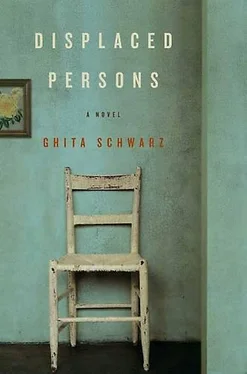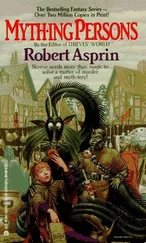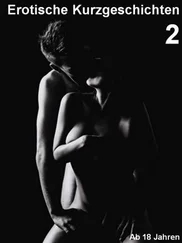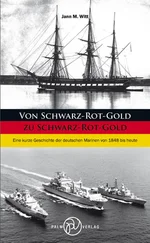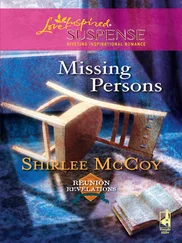What is this? Pavel heard the widow say. This is not a boardinghouse.
He waited a few meters away, with Fela and Chaim beside him. The soldiers spoke in low voices, but Pavel could make out a few words in English.
“House,” murmured the younger one. “You must-”
“Jews,” the other soldier said firmly.
The German Jew was more talkative. You see, he said to the widow, nodding at the same time to the soldiers. They have proof. It is all down on paper, authenticated. He flashed the sworn testimony of the man Pavel had bribed.
They are lying! cried the widow in German. That man, he boarded here in my house! Those two, who knows who they are!
The German Jew smiled at the British soldiers, shrugged his shoulders. After a brief conference in English he turned to the road, where the three still stood.
Stay here, he said. Wait.
The soldiers and their translator disappeared into the house with the widow. Pavel and Fela and Chaim waited, it seemed for almost an hour, finally entering the gate to cross the garden and sit on the stoop at the threshold. When the translator pushed at the door again, it was to hold it open for the widow, who held a suitcase, and for the younger soldier, who carried a trunk. Pavel did not dare look at Fela and Chaim, who sat next to him, their breathing almost synchronized. Chaim kept his face blank, innocent. Perhaps it was wrong to show a young boy how to take a home. But what should they do instead-scavenge for a roof, fight for space with the rats in the camp? No. This was not stealing. This was living.
He watched the old woman’s face as she walked past him-he could accept whatever empty curse she put on him, just as she had accepted the curses of the family that had been expelled for her. But she kept her eyes straight ahead, refusing to look at him. Her skin sagged a little from her chin, and he thought to grab another tin from his rucksack to give it to her, a pale trade for the house. But he did not move.
The older soldier, who appeared to have more authority, approached Pavel with something in his fist: the widow’s key. Then the soldiers loaded themselves into their jeep and started the motor.
The three of them stood in the garden, Pavel grasping the seat of his new bicycle, watching the soldiers’ jeep putter down the street and turn out of sight.
So, said Pavel.
He looked at Chaim and Fela, who did not respond. They seemed to wait for him to do something.
We will live as one family, Pavel announced. Then, with his new key, he opened the door.
May-September 1945
C OFFEE HE KNEW HOW to say in every language. Cigarettes too. Bread. Shoes. German was almost as natural to him as his native Yiddish and Polish, but now, only a short time after the liberation, he could speak in complex measurements to the Czechs and Romanians and Hungarians with whom he traded. A meter of nylon. Two kilos of potatoes. Three dozen shirts without buttons, four cartons of eggs, words for large quantities that had not occurred to him to learn in camp. As Pavel grew stronger, as he learned again to taste a spoonful of soup before swallowing, words and sentences began to form in his mouth and expel themselves without so much struggle.
Now, if asked, he had something to say to the British: “I live in a house.” Pavel was proud of the English sentence, the phrase that made him more than an ordinary refugee stumbling over single words. The house might be modest, but it appeared to the world to be his, and he soon felt a lightness about sending the widow off. If he had trouble falling asleep at night, it was more often from the memory of taking a dying man’s spoon in camp. No, taking possession of the house might have been an ugly act, but it was one that enabled him-and two others!-to live. He had a warm drawer to hold his parents’ photographs and all the scraps of brown paper on which he had written the names of places where family members had last been seen. He had a home, or if not a home, a resting place, with a woman to care for his needs and a young boy to look after. He was a man.
THAT FIRST MORNING FELA came downstairs at sunrise, shoulders wrapped in the blanket she had slept in. Her shoes, uncomfortably wide, flapped from her heels.
Good morning! Pavel emerged from the washroom.
Ah! she cried. Then she collected herself. I’m-good morning.
His clean-shaven face sparkled with a few drops of water his towel had missed, and he reached for his cap. Did I scare you? he said. But there is nothing to fear. The old woman-already she is a few towns away. She has a daughter. No one will come to disturb us.
No, she said. Of course not. Where do you go?
He pushed out his bicycle from behind the door. Now that we have a household, we need more than she stored here. He cleared his voice. I don’t go far, he said. Just for sugar and eggs. There’s a bit of a loaf I left for you in the kitchen.
At the word sugar Fela felt a flinch inside her belly.
Sugar and eggs, Pavel repeated. And I still have a coupon for bread. Don’t worry. He averted his eyes from her bare arms. Then the door shut gently behind him, and Fela heard his bicycle creaking down the street.
She opened the washroom door. Clean toilet. A round mirror hung above the white basin. She kept her face to the side of the mirror, not yet ready to see herself, ugly and swollen, the face of an old woman on a young woman’s hungry body. Instead she splashed herself with cool water, wiped the night’s sweat from her chest and neck. She could bathe now, with Pavel out of the house, or she could wait until Chaim awoke to keep watch should strangers seek to enter. She peered out from the bathroom window. The garden, sprouting with the summer vegetables the old woman had cultivated, seemed frightening, an open space in which a human being was a target. Perhaps they would have felt safer in the refugee camp, surrounded by British soldiers.
She shuffled to the sofa to peer at Chaim, sleeping with his mouth open, covered with a coat. With his eyes closed he looked helpless, pale, not a trace of the sophistication and cunning he had displayed when they had met, finding her in a corner of the market at the provincial center, a city neither of them knew well, a small distance from her hometown, only a day after she had seen her family’s house for herself. She had been in the first trains from Siberia for the repatriated Poles, and she had expected-but she did not remember what she had expected. Now that she had seen the reality-once-familiar neighbors looking at her with curiosity, even hostility, a man she did not know installed in her father’s dry goods shop-she could not remember what she had thought she would recognize.
But Chaim had recognized her. He had known-from what? from her fear?-that she was a Jew, even as he, in his Polish army uniform, tapping her on the shoulder, had fooled her.
“Buongiorno ,” he had said. “ Buongiorno , signorina .”
She had felt something cold etching down her chest. It wasn’t any language she had known. She was silent.
He switched to Polish. You look like you want to go to Italy.
Why do you say that? she managed. I have no desire to cross any borders. I am here looking for-
Or perhaps you are Greek.
Greek? No, no.
Are you sure? His eyes were sharp blue but friendly, and for a moment he looked almost childlike. I know a Greek song. That is why I ask. He began to sing: One, one, who knows one? One, one. I know one.
His voice was soft but clear. Against the music of the buying and the selling of eggs and milk, no one else could hear, but she could: Hebrew. A little Passover song.
He went on. Two, two, who knows two? Two, two. I know two.
Читать дальше
